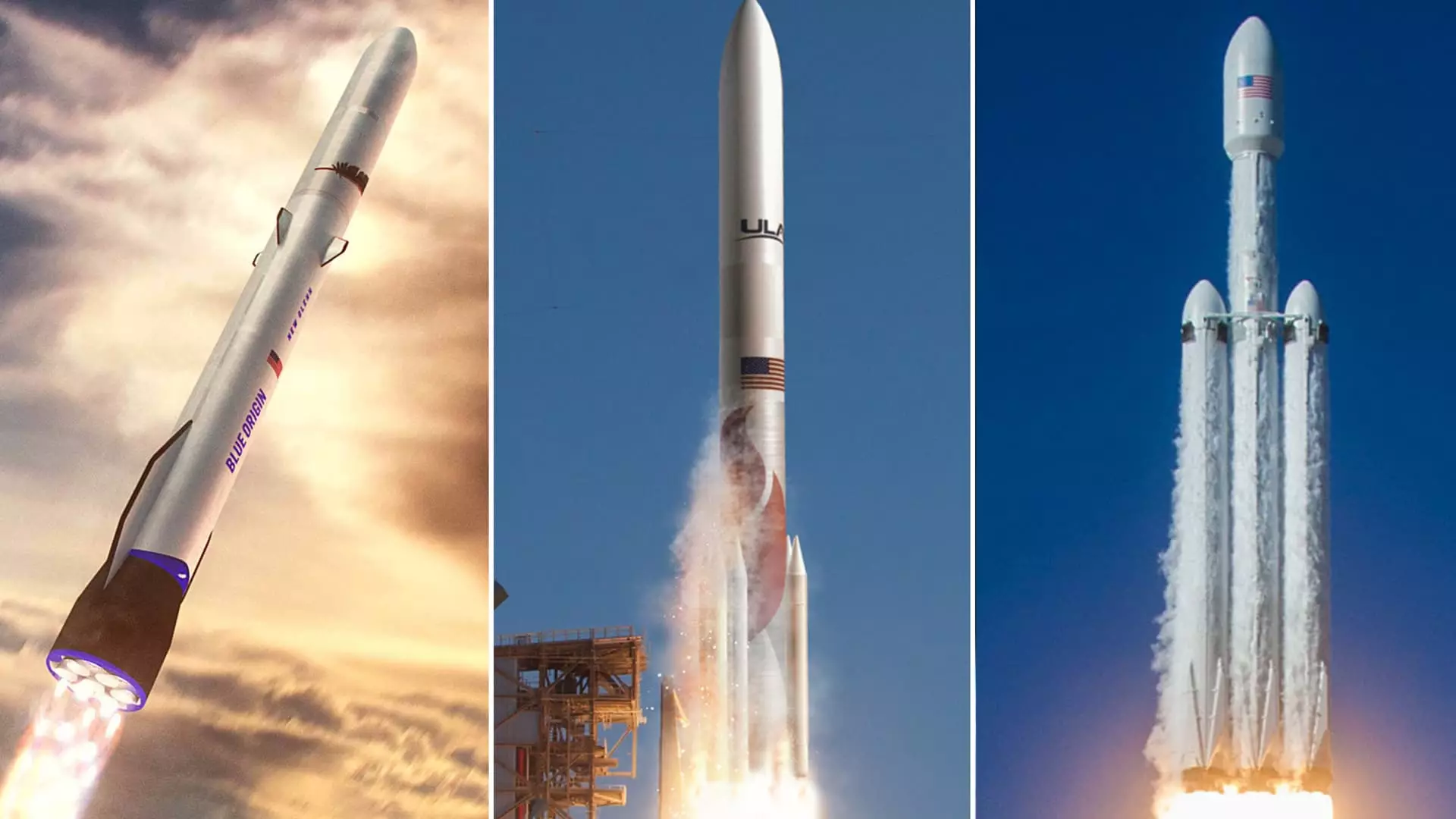The Pentagon recently revealed the first set of victors in the rocket launch contract challenge, with Jeff Bezos’ Blue Origin securing a position for the first time. This triumph for Blue Origin was part of the contracts distributed as part of the Pentagon’s National Security Space Launch program, which is valued at $5.6 billion. Along with Blue Origin, other prominent players like Elon Musk’s SpaceX and United Launch Alliance (ULA) were also granted contracts as part of the multi-year third phase of the NSSL initiative.
Upon release of the news, Blue Origin, SpaceX, and ULA did not provide immediate comments on their successful bids. The contract, known as NSSL Phase 3 Lane 1, enables these companies to vie for additional contracts until mid-2029. ULA and SpaceX have been actively competing for contracts under the preceding Phase 2 edition of NSSL. During Phase 2, ULA was assigned 26 missions valued at $3.1 billion, while SpaceX secured 22 missions worth $2.5 billion.
Blue Origin, alongside Northrop Grumman, were overlooked during Phase 2 when ULA and SpaceX were selected for the program in August 2020. However, with the onset of Phase 3, the U.S. military is elevating the competition by including more participants and raising the stakes for acquiring Space Force mission contracts. It is expected that Phase 3 will witness a total of 90 rocket launch orders, with a two-lane approach of categories in order to involve a wider range of companies in the bidding process.
The recent allocation of contracts signifies a significant milestone for Blue Origin, marking its first success within the NSSL program. For SpaceX and ULA, the additional contracts reinforce their standing as key players in the space exploration and national security sectors. The contracts are not only a testament to the companies’ capabilities but also serve as a clear indication of the evolving landscape of space missions and the increasing competition within the industry.
As Phase 3 unfolds and more contracts are up for grabs, the competition between Blue Origin, SpaceX, and ULA is expected to intensify. With the U.S. military’s heightened focus on space missions and national security, the companies will need to showcase their innovation, reliability, and efficiency in order to secure future contracts. The evolving dynamics of the space industry underscore the importance of collaboration, technological advancement, and strategic partnerships in navigating the complex terrain of space exploration and satellite deployment.

